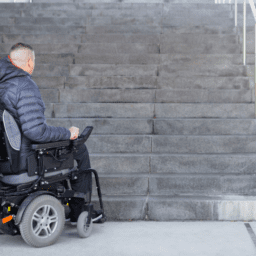If you’ve been living with Parkinson’s for any length of time, you’ve probably heard the terms holistic care, supportive care, or palliative care. But you may not know what they mean when it comes to your care, now and in the future.
Dr. Christopher Tarolli recently joined us to talk about palliative care and how it is ideal for people living with Parkinson’s.
IN THIS EPISODE, YOU WILL LEARN:
- What your medical team means when they talk to you about palliative care
- The types of providers who can deliver palliative care
- The difference between person-centered vs disease-centered care
- How to make sure your core medical providers match your goals for care with your plan of care
- How to advocate and receive the kind of supportive care you need even if your community doesn’t have a palliative or supportive care center for people with Parkinson’s
- How to build your Parkinson’s roadmap
To download the transcript, click here.
Note: This is not a flawless word-for-word transcript, but it’s close.
Notes
- Palliative care is supportive, symptom-directed care designed to reduce the burden of symptoms among people living with chronic diseases
- Because there are no disease-modifying or curative therapies for Parkinson’s, the care that many people with Parkinson’s receive is palliative care
- Specialty palliative care, such as neuro palliative care, is made up of a team of care providers such as doctors, nurses, therapists, counselors, chaplains, and more
- Palliative care is person-centered care. It focuses on the person: their quality of life, their most burdensome symptoms, their goals, their priorities
- Palliative care can also be beneficial for care partners as they can receive counseling and other support for long-term planning
- Advocate for yourself at medical appointments even if you aren’t in a palliative care setting. Be sure your doctor knows what your priorities and symptoms are so you can receive the best care for you
- Even if you don’t have a dedicated palliative care center nearby, you can create your own care team of people who can help you most with your unique symptoms and goals. Some providers to consider: primary care doctor, neurologist or movement disorder specialist, physical therapist, occupational therapist, speech-language therapist, counselor or chaplain, and/or social worker
- Many insurance providers will cover visits to a palliative care specialist just as they do other sub-specialists; so, check with your insurance to learn how these services may fit into your insurance plan
Want to learn more about palliative care?
Parkinson’s Podcast: Palliative Care for Parkinson’s
THANKS FOR LISTENING!
To share your thoughts:
- Leave a note in the comment section below.
- Ask a question by emailing us here.
- Share this show on Facebook.
To help out the show:
- Leave an honest review on iTunes. Your ratings and reviews really help, and we read each one.
- Subscribe on iTunes.
LISTEN & SUBSCRIBE
APPLE PODCASTS | STITCHER
*The Second Season of the Parkinson’s Podcast is made possible through generous support in honor of Dr. Margaret Hilgartner.

















